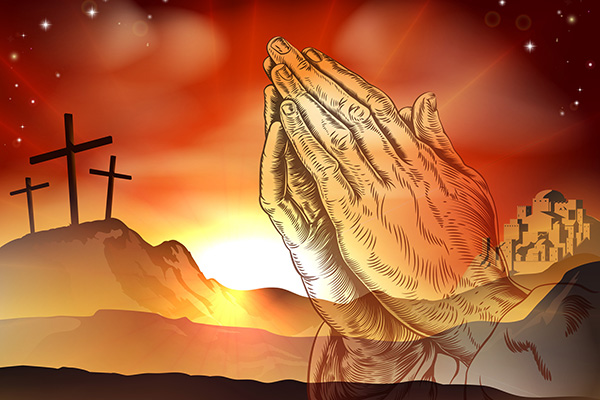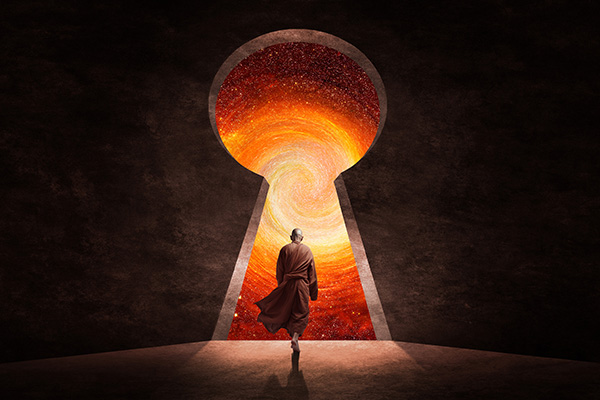compassion
The Touching Tale Of The Praying Hands
 In the fifteenth century, in a tiny village near Nuremberg, Germany, lived a family with 18 children. Yes, eighteen! To put food on the table for this mob, the father and head of the household, a goldsmith by trade, worked nearly 18 hours a day at his trade, as well as any other paying job he could find in the neighborhood.
In the fifteenth century, in a tiny village near Nuremberg, Germany, lived a family with 18 children. Yes, eighteen! To put food on the table for this mob, the father and head of the household, a goldsmith by trade, worked nearly 18 hours a day at his trade, as well as any other paying job he could find in the neighborhood.
Despite their seemingly hopeless situation, Albrecht and Albert, two of the older children, had a dream. They both wanted to pursue their talent for art, but they were well aware that their father would never be financially able to send either of them to an art academy.
After many long discussions at night in their crowded bed, the two boys finally worked out a pact. They would toss a coin. The loser would go down to the nearby mines and use his earnings to support his brother, who would attend the academy.
Then, after four years, when the brother who won the coin toss finished his studies, he in turn would support the mining brother to also attend the academy – either by selling his artwork or, if necessary, by working in the mines.
They tossed a coin one Sunday morning. Albrecht Dürer won the toss and went to Nuremberg to study art. Albert went down into the dangerous mines and spent the next four years financing his brother, whose creative work at the academy was almost immediately a sensation.
Albrecht’s etchings, woodcuts, and oils were far superior to those of most of his fellow students and even his professors, and by the time he graduated he was beginning to earn substantial fees for his commissioned works.
Finding True Purpose In The Unity Of Love
 There is a profound truth about life that many people don’t fully grasp until they reach the end of their journey.
There is a profound truth about life that many people don’t fully grasp until they reach the end of their journey.
Our true purpose in this life not about success, status, or the material things we accumulate. It’s about something far greater and more beautiful: love.
At the core of our existence is the simple yet powerful truth that we are all connected. That is why we must love unconditionally, share our gifts with the world, and show up for others with kindness, compassion, and authenticity.
Yet so often we get caught up in the pursuit of validation, accomplishment, and material success, only to realize – sometimes too late – that love is the greatest accomplishment of all.
Consider a drop of water falling into the ocean. Alone, it may seem small and separate. But the moment it merges with the vast ocean, it’s no longer just a drop-it becomes part of something infinite, part of every wave, every current, and every ripple.
That’s us. We are never really separate; we are all woven into the fabric of existence, flowing together in this great cosmic dance.
And when we live from love – when we choose to be present, to forgive, to uplift others – we become more than ourselves. We become a part of something timeless.
In the end, what matters most is not what we own or what we’ve accomplished, but the love we’ve given, the lives we’ve touched, and the hearts we’ve left a little warmer. Love is the thread that binds us all together, the force that carries us beyond this fleeting moment into eternity.
Surround Yourself With Love, Light And Positive People
 Some people emanate a charismatic warmth and depth that is almost otherworldly. Their presence is soothing, their energy uplifting, and their kindness genuine.
Some people emanate a charismatic warmth and depth that is almost otherworldly. Their presence is soothing, their energy uplifting, and their kindness genuine.
These are the souls you want to stay connected with — the ones who inspire, support and nurture your growth. They bring light into your life, and in their company you feel understood, valued, and enriched. Such people are rare gems, and when you find them, you cherish them.
On the other hand, some people remain stagnant in their personal growth and soul evolution. They resist change and cling to old patterns and limiting beliefs. Again, this is part of the human experience, and it is not for others to judge.
Instead, I imagine them finding their own path elsewhere. I envision them thriving, but at a distance from my own journey. It is not selfish to protect your own energy; it is necessary for your health and well-being.
Then there are those who seem perpetually stuck in a schoolyard mentality, indulging in gossip and petty rivalries. Although they have grown physically, their emotional and spiritual maturity lags behind. The game of “grapevine” is their chosen pastime, spreading rumors, conspiracy theories and toxic negativity.
These individuals serve as a spiritual reminder of what we must rise above. Instead of engaging them, release them with love – let them be do their karmic growth somewhere else, far from your peace and joy. Continue reading
Why More People Are Turning To Phone Psychic Readings
 Social media platforms, text messaging and chatbots have transformed the way we communicate and access information, but it has also left many feeling isolated and disconnected. While technology has made our lives more convenient, it has also created a world where real human connection is often lacking.
Social media platforms, text messaging and chatbots have transformed the way we communicate and access information, but it has also left many feeling isolated and disconnected. While technology has made our lives more convenient, it has also created a world where real human connection is often lacking.
At Psychic Access we find that this growing void is leading more and more people to seek out phone psychic readings.
The world’s increasing reliance on digital communication has ironically led to a resurgence in the demand for live, one-to-one psychic readings over the phone in the post-landline era.
While artificial intelligence and automated responses have their place, they cannot replicate the warmth, empathy and intuitive insight of a gifted psychic.
Many people are frustrated by the impersonal nature of modern communication and long for a conversation that is both meaningful and transformative.
With our team of expert psychics and mediums, people experience the reassurance, guidance and insight that only real human interaction can provide, in the comfort and convenience of their office or home.
At Psychic Access we understand this need. Since our inception two decades ago in February 2005, we have been committed to providing live, personal psychic readings by phone 24/7 to clients around the world. Our mission is to provide a truly personal experience – one that is confidential, insightful and deeply rewarding.
As technology continues to evolve, we remain steadfast in our belief that nothing can replace the comfort and clarity that comes from speaking to a real, compassionate psychic.
Reincarnation And The Karmic Journey Of The Soul
 Reincarnation — the belief that the soul experiences multiple lifetimes through a continuous cycle of birth, death, and rebirth — is embraced by many spiritual and religious traditions worldwide. Wisdom traditions such as Hinduism, Buddhism, Jainism, and various indigenous belief systems integrate reincarnation deeply into their teachings.
Reincarnation — the belief that the soul experiences multiple lifetimes through a continuous cycle of birth, death, and rebirth — is embraced by many spiritual and religious traditions worldwide. Wisdom traditions such as Hinduism, Buddhism, Jainism, and various indigenous belief systems integrate reincarnation deeply into their teachings.
For those who embrace the concept, reincarnation offers a transformative perspective on life and mortality. When we believe that our soul consciousness continues beyond this life, death is no longer something to be feared. Instead, it becomes a transition — a doorway to new opportunities for growth and evolution. Reincarnation provides a rich and expansive framework for understanding the soul’s journey.
Whether you fully embrace the concept or explore it with curiosity, reflecting on the interplay of karma and rebirth can inspire greater mindfulness, compassion, and purpose. In this view, death is not an end, but a passage — a gateway to continued exploration and spiritual progress.
Belief in some form of continued existence beyond this life is widespread. A 2011 Ipsos Global Advisor survey of more than 18,000 people in 23 countries found that 51% of respondents believe in an afterlife that includes beliefs in heaven, hell, and reincarnation. Specifically, 7% of respondents said they believed in reincarnation.
In the United States, a 2021 Pew Research Center survey found that approximately 33% of adults believe in reincarnation. This belief is more prevalent among younger adults under 50 (38%) compared to those aged 50 and older (27%).
The Freedom To Live Your Truth
 Honesty is one of those things we all know is important, but let’s face it — it’s not always the easiest option. Telling the truth often does not win you friends, make your family happy, or help you climb the corporate ladder.
Honesty is one of those things we all know is important, but let’s face it — it’s not always the easiest option. Telling the truth often does not win you friends, make your family happy, or help you climb the corporate ladder.
But when you’re on a spiritual journey or facing a karmic reckoning — the truth is everything! It’s not just about being a better person; it’s about living in alignment with your higher self.
Being honest brings a sense of lightness, like a weight lifted from your shoulders. It frees you from the heavy burden of keeping up appearances and the stress of worrying about what others think.
On the other hand, dishonesty — whether it’s a little white lie or a big deception — creates not only tension, guilt, and physical discomfort; it’s a karmic tumor that poisons your soul, fueling a cycle of chaos and imbalance in your life.
Lies and deceit attract confusion, mistrust, and disharmony, disrupts your energy field and throws your whole being out of balance.
This is why it is said that the truth will set you free. You’ve probably heard the saying? It’s been said so many times that it may sound like a cliché, but there is deep wisdom in it. The truth allows us to live without fear, without constantly looking over our shoulder. It brings clarity and peace.
But let’s face it — truth can be scary. We often avoid it because we don’t want to hurt someone’s feelings, rock the boat, or face rejection.
An Unforgettable Valentine’s Day With Venus In Pisces
 Valentine’s Day always has an air of magic about it, but this year it has an extra layer of fateful intensity. The stuff of fairy tales and romance novels!
Valentine’s Day always has an air of magic about it, but this year it has an extra layer of fateful intensity. The stuff of fairy tales and romance novels!
With Venus, the planet of love and beauty, currently transiting dreamy and ethereal Pisces, love takes on a soulful, almost otherworldly quality.
The energies of love and romance are heightened under this transit, making every interaction feel much deeper, more meaningful, more destiny and fate. Our love lives are infused with an unprecedented sense of compassion, emotional depth, and spiritual connection.
Romantic intuition is heightened during this time, and connections feel more like destiny than chance. The energy of attraction shifts from the physical to the ethereal, making love feel transcendent, poetic, and deeply moving.
Whether you’re in a relationship or meeting someone new, expect emotions and passion to run deep. Every new interaction will be special, every glance charged with meaning, and every intimate moment may feel like divine orchestration.
If you find yourself unexpectedly drawn to someone this Valentine’s Day, or in the coming weeks, trust that it’s not just coincidence. Venus in Pisces is busy weaving a tapestry of soul connections, heightened intuition, and chemistry that transcends the ordinary. This transit is a time when love is more than an experience — it is transcendental.
A word of caution, though. With the passion of Venus and dreamy nature of Pisces, it’s also important to stay grounded during this transit. The enchantment of Venus in Pisces can lead to unrealistic expectations or longing for unattainable love. If you find yourself caught up in a romantic fantasy or longing for an unavailable person, take a step back and get back in touch with reality.